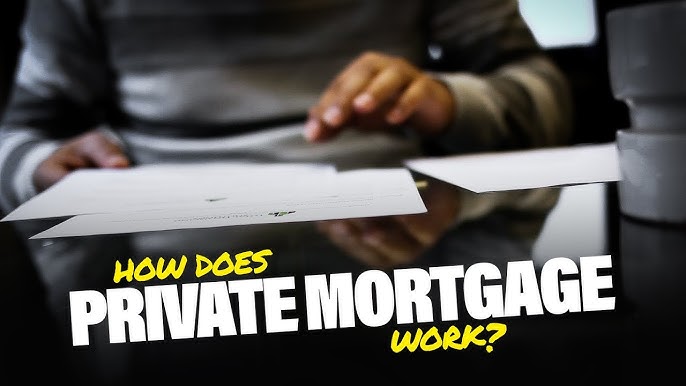From Pre-Approval to Closing: Your Journey With private mortgage lenders savannah ga
Just how It Functions: A Comprehensive Guide to Mortgage Lending for First-Time Purchasers
Navigating the world of mortgage lending can be frightening for novice purchasers. Comprehending the basic elements like principal, rate of interest, and down payments is vital. Furthermore, recognizing the various kinds of mortgage car loans and the application procedure can substantially influence one's experience. By checking out vital factors that affect rate of interest, purchasers might reveal valuable understandings. What else should they consider prior to making such a significant financial commitment?
Understanding Mortgage Fundamentals
When novice customers get in the domain of homeownership, recognizing mortgage essentials becomes essential for making educated decisions. A mortgage is essentially a lending protected by the residential property being purchased, permitting people to purchase a home without paying the full price upfront. Customers should know crucial parts, consisting of principal, rate of interest, taxes, and insurance, frequently summarized as PITI. The principal is the amount obtained, while passion is the price of borrowing that amount, expressed as a portion. Taxes and insurance are added costs that can considerably affect monthly repayments. Purchasers should also consider the finance term, typically 15 or thirty years, which influences payment amounts and total passion paid. Recognizing credit rating is vital, as they influence loan qualification and rates of interest. Understanding these basic concepts empowers first-time customers to navigate the mortgage landscape confidently and choose that align with their financial objectives.
Types of Mortgage Loan
When taking into consideration mortgage choices, first-time purchasers usually run into two key types: fixed-rate and variable-rate mortgages. Fixed-rate mortgages offer security with constant payments over the finance's term, while variable-rate mortgages can provide reduced preliminary rates that might rise and fall gradually. Recognizing these distinctions is crucial for making an informed choice.
Fixed-Rate Mortgages
Fixed-rate mortgages offer stability and predictability for first-time property buyers maneuvering the intricacies of home funding. With a fixed-rate mortgage, the interest price continues to be continuous throughout the car loan term, generally varying from 15 to three decades. This consistent price enables customers to plan their spending plans successfully, understanding that their monthly settlements will not fluctuate. First-time purchasers gain from this structure as it removes uncertainty in lasting monetary dedications. Additionally, fixed-rate mortgages usually come with reduced preliminary prices contrasted to adjustable-rate options, making them an attractive selection for those looking to establish home equity with time. Generally, fixed-rate home mortgages supply a straightforward course to homeownership, suitable for people looking for lasting financial protection.
Adjustable-Rate Mortgages
For first-time homebuyers seeking versatility, variable-rate mortgages (ARMs) can give an enticing option to fixed-rate car loans. ARMs normally offer lower first rate of interest prices, making regular monthly repayments extra budget friendly in the very early years. These rates change after a preliminary set duration, which can lead to raised repayments over time. Customers ought to comprehend the index and margin that figure out future rate adjustments. Typically, ARMs have adjustment durations of one, 3, or five years, with regular caps to limit exactly how much prices can increase at each modification. While ARMs can be useful for those preparing to market or refinance before the price changes, they additionally carry threats if market problems alter significantly. Detailed study is important for informed decision-making.
The Mortgage Application Process

Secret Aspects Affecting Rates Of Interest

Deposits and Closing Expenses
Recognizing down repayments and shutting prices is essential for novice buyers, as these expenses considerably affect the total cost of a mortgage. A deposit is the first quantity paid in the direction of the home's purchase price, typically expressed as a percentage. It can range from as low as 3% to 20% or even more, relying on the funding kind and lending institution demands. A larger deposit can lower regular monthly mortgage payments and eliminate private mortgage insurance (PMI), which safeguards loan providers in case of default.Closing expenses, on the various other hand, incorporate numerous costs incurred during the home-buying process. These might consist of loan origination charges, assessment charges, title insurance policy, and attorney charges, generally completing 2% to 5% of the home's acquisition rate. New buyers need to budget for both deposits and shutting expenses to guarantee they can secure their mortgage and efficiently navigate the home-buying procedure.
Tips for First-Time Homebuyers
What vital suggestions can new buyers comply with to navigate the usually difficult process of acquiring a home? Establishing a sensible budget is crucial. Purchasers need to assess their financial situation, consisting of income, expenditures, and potential mortgage payments. Next off, obtaining pre-approval for a mortgage can give quality on what one can manage and enhance their placement when making an offer.Researching areas is similarly vital; buyers ought to consider variables such as amenities, colleges, and future advancements. In addition, it is a good idea to collaborate with a certified realty agent who can provide important understandings and advice throughout the purchasing process.Home assessments should not be neglected, as they can discover concealed issues that may impact lasting satisfaction. Lastly, customers ought to continue to be individual and versatile, understanding that locating the appropriate home may take some time. By complying with these tips, novice homebuyers can approach the marketplace with self-confidence and understanding.
Frequently Asked Concerns
What Papers Are Required for Mortgage Pre-Approval?
For mortgage pre-approval, individuals typically need to provide revenue verification, employment background, credit report Resources records, income tax return, financial institution declarations, and details of any financial obligations (Private Mortgage Lenders Savannah GA). These records aid loan providers examine financial ability and figure out lending eligibility
Can I Get a Mortgage With Bad Credit Score?

Several loan providers take into consideration candidates with poor credit report, though terms might vary. Greater passion rates or bigger down payments can be called for. Discovering options with specialized lending institutions or government programs can additionally improve opportunities for approval.
How much time Does the Mortgage Authorization Process Take?
The mortgage approval process usually takes between 30 to 45 days. Aspects influencing this timeline include the lending institution's efficiency, the borrower's economic documents, and the intricacy of the financing application. Delays might happen because of extra requirements.
What Takes place if I Miss a Mortgage Repayment?
If a home loan payment is missed, late fees might be incurred, and credit ratings can endure. Prolonged non-payment may lead to foreclosure procedures, motivating the lending institution to redeem the residential or commercial property after go to my site a series of warnings.
Can I Refinance My Mortgage Later?
Re-financing a home mortgage later on is often possible, permitting property owners to adjust their finance terms, rate of interest, or monthly repayments. Nonetheless, qualification depends on credit score ratings, present market conditions, and the existing mortgage's terms. Private Mortgage Lenders Savannah GA.